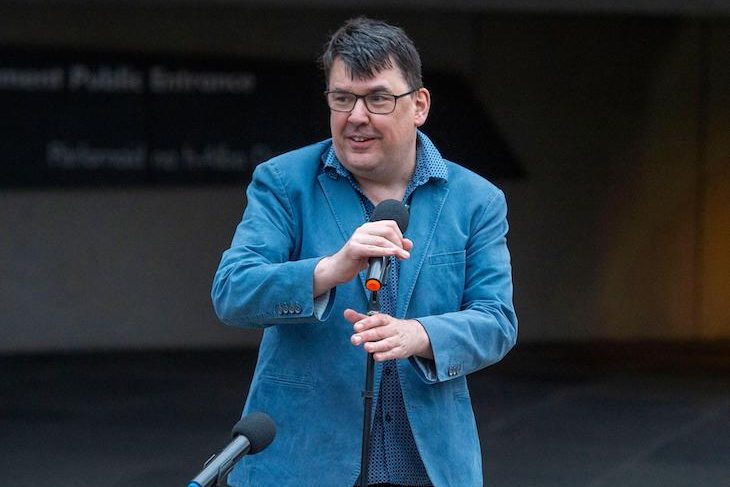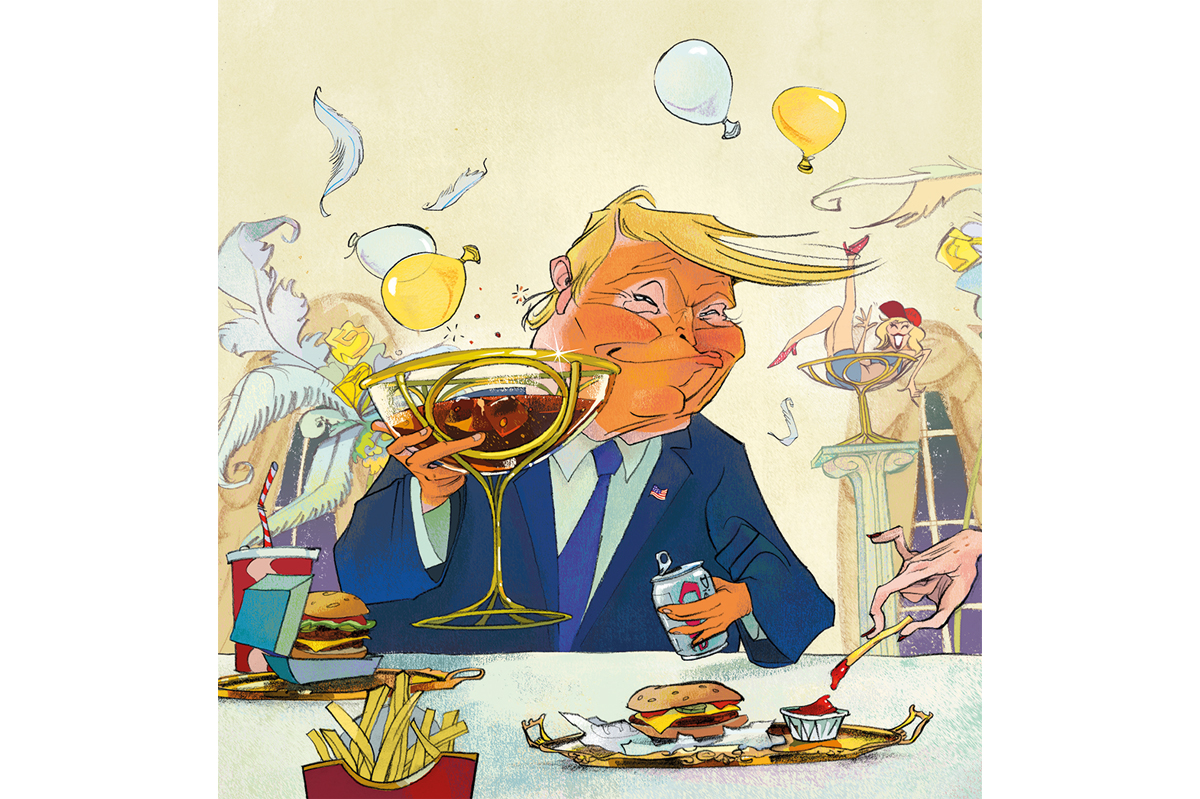The hoo-ha in Britain over free speech being trampled on has always seemed exaggerated. I earn my living through voicing my opinions, and not once have I ever felt unable to say exactly what I think – especially when that’s controversial or offends large numbers of people.
I am, of course, well aware that some people have had a very different experience – such as the comedy writer Graham Linehan, creator of Father Ted, who has robustly pointed out that biology means that men who identify as women are, nonetheless, still men. For that, his career was effectively ended in an industry that has long been in thrall to trans and other ideologies.
But I have bridled at some of the supposed examples of free speech being destroyed. I am not one of those, for example, who believes Lucy Connolly is some sort of hero. Her social media post in the wake of the Southport murders last summer saying that hotels with asylum seekers should be set on fire was, to my mind, not merely revolting but incitement. Had it been merely revolting – something with which most decent people were horrified by – then that would be something for which she should have been taken to task, but not by the criminal justice system. Her post crossed a line, however.
But there are moments when the penny drops and you realize you are wrong. Today has provided one of those moments. When Linehan returned from the United States yesterday, where he moved to be able to work, he was promptly arrested at Heathrow by five armed police officers. What alleged crime must he have been suspected of to be met by a show of such force? Murder? Terrorism? Armed robbery?
None of those. He was arrested, he says in a Substack he posted earlier today, because of three tweets he had posted.
Linehan’s tweets are nothing like Lucy Connolly’s. They are merely expressions of his view of trans ideology, albeit strongly worded, in his (entirely legitimate) style. In one, he posted a picture of what seems be a trans rights demonstration, with his caption: “A photo you can smell.” Another reads: “I hate them. Misogynists and homophobes. F— em.” And the third says: “If a trans-identified male is in a female-only space, he is committing a violent, abusive act. Make a scene, call the cops and if all else fails, punch him in the balls.”
You might not like his tone. You might find his attitude confrontational. Trans people will doubtless find the posts offensive. So what? There is no law against giving offense.
Except that appears no longer to be true. The Metropolitan Police has confirmed that Linehan was held “in relation to posts on X.” “The man in his 50s was arrested on suspicion of inciting violence,” a spokesman said.
Criminality is evolving every day in this sphere. Increasingly, giving offense is being taken by the police and the Crown Prosecution Service as prima facie evidence of criminality. The other side of this coin is that taking offense is seen as legitimate grounds for a complaint. Presumably someone made a complaint to the police over these tweets – unless, and this is not beyond the realms of possibility, the police have officers who spend their days trawling the internet looking for posts that offend what they consider to be good taste. Is that really a good use of police time?
Trust in the police is at an all-time low. In October 2024, 52 percent of adults told YouGov that they had no confidence in the police to tackle crime, compared to 39 percent in October 2019. What the police don’t now do – tackle crime – is just one aspect of the collapse in trust. Allied to that is what the police do now do – such as arresting people over social media posts which merely give offense to someone. It’s of a piece with what is seen on the regular hate marches, where they stand and watch when there are calls for the murder of Jews (such as the widespread “globalize the intifada”), but only spring into action when a counter-demonstrator turns up, saying that they are likely to provoke a breach of the peace.
What we are seeing is the congruence of two dangerous developments. First, is the idea that giving offense is something which should be banned. The government’s current move towards adopting a definition of Islamophobia is part of this, and has rightly been labelled by Fiyaz Mughal, the founder of Muslim anti-prejudice group TellMAMA, as introducing a blasphemy law by the back door. Similarly, the onward march of the trans ideologues may have been stopped in its tracks by the Supreme Court’s ruling on the definition of “woman,” but the ideology has already taken hold of many institutions and spaces.
Which leads to the second development – the police’s capture by this and other “woke” ideologies. Linehan describes how in his police interview a police officer mentioned trans people: “I asked him what he meant by the phrase. ‘People who feel their gender is different than what was assigned at birth.’ I said: ‘Assigned at birth? Our sex isn’t assigned.’ He called it semantics, I told him he was using activist language.”
This is the nub of it. The police, supposed guardians of the law, have become players in the activists’ capture of the institutions. It is not that they are no longer concerned with crime, but that they are redefining what crime is. It is terrible that Linehan should have had to go through this. But if it wakes more of us up to what is happening in Britain, his arrest will have served our country well.

























